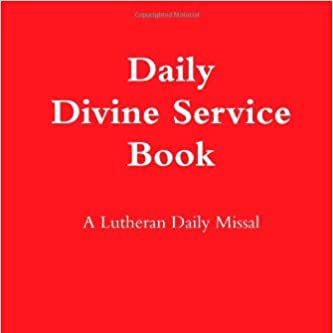The Beginning of the End

As Passiontide begins on Judica, the Fifth Sunday in Lent, the Church begins a time of intense contemplation of the Lord’s Passion and the final portion of her march toward the cross. Lasting two weeks until Easter Sunday, this period of time has been designated for particularly solemn preparation and marks “the beginning of the end” of the Church’s most penitential season. It is a time during which many of the other events and themes of Lent are intensified in the observance of Passiontide, a timeframe that also encompasses Holy Week and the Triduum Sacrum, or “three holy days,” of Maundy Thursday, Good Friday, and Holy Saturday.
Of course the entirety of Lent focuses on solemnity and repentance; however, this fifth Sunday in the season especially impresses upon us the grievousness of our sin and the light of Jesus’ holiness. It is a day on which our contemplation of sin is supposed to increase along with our contemplation of our Lord’s suffering and death.
While the historic name for the Fifth Sunday in Lent is Judica (based on the first word of the Introit, which means “judge” in Latin), it has sometimes also been referred to as Dominica passionis, meaning Passion Sunday, or Dominica atra, which recalls how church altars are occasionally draped in black for this day and the remainder of Passiontide.
When you look at the propers and lessons for Judica, they demonstrate increasing drama, urgency, lament, and pleading on behalf of the Church and in preparation for Holy Week. The introit and gradual are fine examples: “Judge me, O God, and plead my cause against an ungodly nation. Oh, deliver me from the deceitful and unjust man!” and “Deliver me, O Lord, from mine enemies! Teach me to do Thy will! He delivered me from mine enemies; yea, Thou liftest me up above those that rise up against me; Thou hast delivered me from the violent man.”
Likewise, the Gospel lesson of John 8:46–59 recalls how our Lord’s Passion did not just occur in the hours and days leading up to his crucifixion; rather, it characterized the entirety of his ministry: “He came to His own home, and His own people received Him not” (John 1:11). It is after we hear this Gospel text on Judica that crosses and images of Jesus are veiled and every instance of the Gloria Patri disappears from mass. Even Trinitarian doxologies of hymns are omitted, reminding us how in response to the violence of the people, in the Gospel for Judica Sunday, the Lord “Jesus hid Himself.”
Judica Sunday, then, serves as a reflection upon both the blindness that our grief causes and how, even in these darkest moments, we can trust that Christ is always with us. As the strains and increased burdens of Judica might cause us to look forward even more expectantly to the end of Passiontide, the Church is still thankful for this special time of reflection and contemplation before Holy Week and the historic emphasis on our need to rely on God.

A Brief History
Looking at the history of the liturgical seasons and Sundays of the Church year, Passiontide is older than Lent itself. It was established as a special period of fasting as early as the third century, and the entirety of its fourteen days were dedicated to a reflection upon Christ’s passion.
Only later on did the Church adopt the customary practices associated with the other days within Passiontide—during which the culture of Holy Week and the Triduum Sacrum evolved. In modern times, the focus of Passiontide is usually placed on these three days with the result that some might not even know about the existence and importance of Passion Sunday within the larger framework of the weeks leading up to Easter.
Because of this long history of observance within the Church, many customs are associated with Judica and the beginning of Passiontide, including the aforementioned veiling of crosses and images of Jesus and omission of the Gloria Patri. Many Lutherans still keep these traditions in the church and home, reflecting the ways in which Judica and Passiontide mark the beginning of the end of Lent.
Collect
We beseech Thee, Almighty God: mercifully to look upon Thy people; that by Thy great goodness they may be governed and preserved evermore, both in body and soul; through Jesus Christ, Thy Son, our Lord, who lives and reigns with Thee and the Holy Ghost: ever one God, world without end. Amen.
Lessons
Resources
Issues, Etc. interview with the Rev. David Petersen on Judica
Propers found in Daily Divine Service Book: A Lutheran Daily Missal, edited by the Rev. Heath Curtis
References:
1. The Rev. Burnell Eckardt. “Passiontide.” 2021.
2. Lindemann, the Rev. Fred H. The Sermon and The Propers, Volume II: Pre-Lent to Pentecost. Concordia Publishing House. 1958.
3. Weiser. Francis X. The Easter Book. St. Augustine Academy Press. 2018.
Images:
1. Jewish men pick up stones to throw at Christ, after Christ has ruled that he had been for Abraham was, printmaker Jan Christoffel Jegher, designed by Antoine Sallaert, Belgium, 1649.
2. Christ in Limbo, Fra Angelico, Italy, 1441-2.




[…] of covering certain images in church buildings during Passiontide, a two-week period beginning on Judica Sunday. While some images like stained glass are not usually covered with veils—probably for practical […]